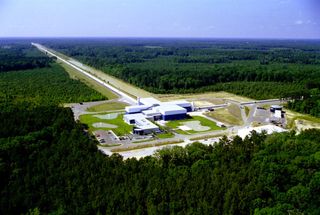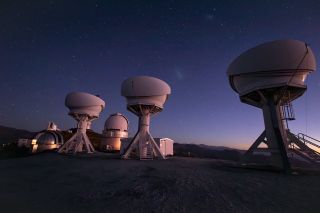Gravitational Waves: The latest discoveries and star crash news
Latest about gravitational waves
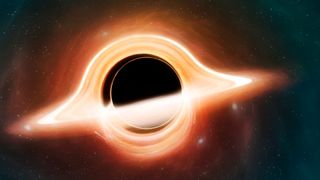
'Twisty' new theory of gravity says information can escape black holes after all
By Paul Sutter published
Einstein's theory of relativity say black holes are 'bald', but a new tweak to his research may give the mysterious objects their long-sought 'hair.'
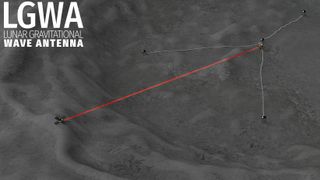
Gravitational wave detectors on the moon could be more sensitive than those on Earth
By Tereza Pultarova published
Scientists developing more sensitive next-generation gravitational wave detectors struggle with technical challenges that might be easily overcome by putting such detectors on the moon.
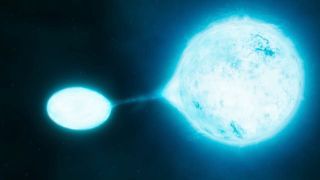
Gravitational waves show black holes prefer certain masses before they collide
By Keith Cooper published
Knowing that black holes tend to have these masses could help provide a new way of measuring the expansion rate of the universe.
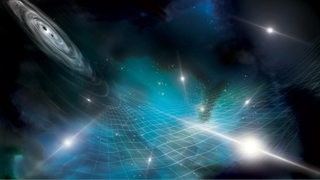
Supermassive black holes may solve mystery of our universe's gravitational-wave 'hum'
By Robert Lea published
NANOGrav made the first detection of low-frequency gravitational waves this year. Now, the hunt is on to find the source of these ripples in space — and supermassive black holes are lead suspects.
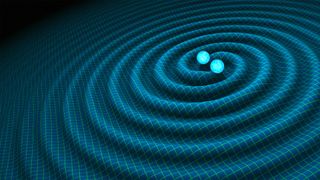
Gravitational waves could help us find out how fast the universe's expansion is accelerating
By Robert Lea published
Gravitational waves from merging black holes distorted due to a phenomenon predicted by Einstein could be a new way of measuring the rate of cosmic expansion.

The universe is humming with gravitational waves. Here's why scientists are so excited about the discovery
By Robert Lea published
The very fabric of the universe is ringing with gravitational waves from its earliest epoch, and researchers have finally "heard" this cosmic symphony.

The gravitational wave background of the universe has been heard for the 1st time
By Sharmila Kuthunur published
In a historic first, astronomers have detected low-frequency gravitational waves using a galaxy-sized antenna of millisecond pulsars in the Milky Way.
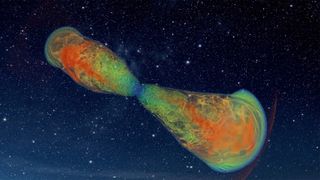
Gravitational waves may come from 'cocoons' of debris around dying stars (video)
By Sharmila Kuthunur published
Astronomers have created the first model for how debris around exploding stars could emit gravitational waves powerful enough to be detected by instruments on Earth.
Breaking space news, the latest updates on rocket launches, skywatching events and more!
